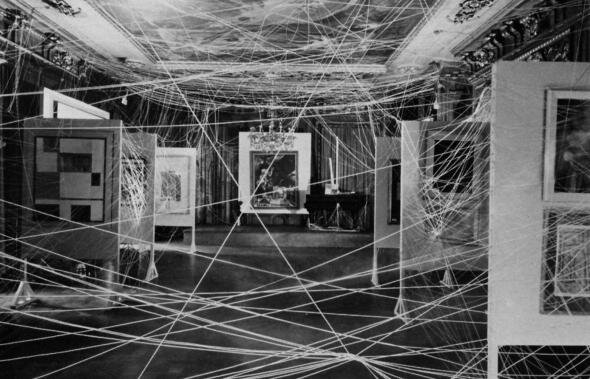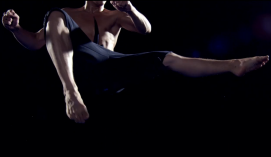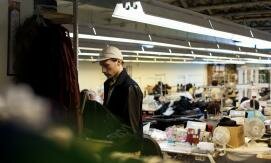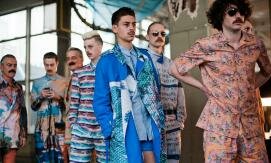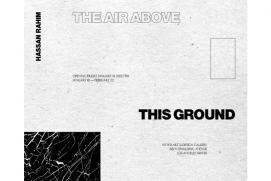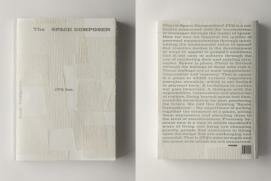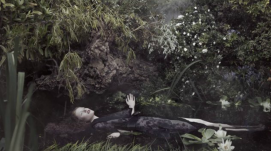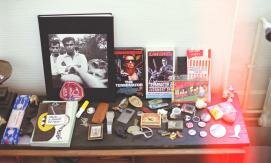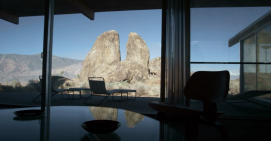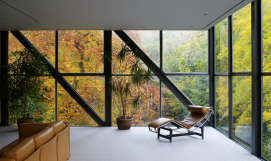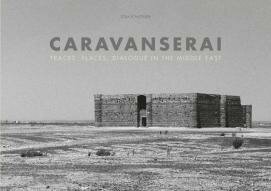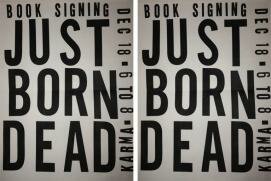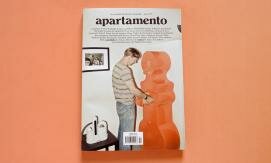Dancing Around Duchamp at the Barbican
10/01/2013Dancing Around Duchamp is a series of events to be held at London's Barbican Centre from mid February that explore the work of Marcel Duchamp, his precursors, collaborators and the artists he influenced across music, dance, theatre, film and art.
The centrepiece of the series is an exhibition that explores Duchamp's legacy in the US, The Bride and the Bachelors: Duchamp with Cage, Cunningham, Rauschenberg and Johns. The show will focus on Duchamp's influence on the four modern greats- composer John Cage, choreographer Merce Cunningham, and visual artists Robert Rauchenberg and Jasper Johns, and features around 90 works from across the disciplines of painting, sculpture, dance and music. The exhibition will feature live pianists playing Cage scores, punctuated by the recorded sounds of dancers performing Cunningham's work. The gallery will also host the Rambert Dance Company performing Cunningham's RainForest and Richard Alston Dance Company performing mixed pieces from Cunningham's repertoire.
As part of the series, Theatre de la Ville-Paris will perform Eugène Ionesco's 20th Century Absurdist play Rhinoceros, a late 1950s critique on the plague of conformity. Duchamp and Ionesco moved in the same Parisian avant-garde circles, and their works explore similar surrealist and absurdist themes.
Dancing Around Duchamp will also include a one-off performance of Cage's groundbreaking Lecture on Nothing by the theatrical avant-garde performer Robert Wilson. This homage to Cage's philosophical and poetic text will feature music by composer Arno Kraehan and images from Polish video artist Tomek Jeziorsk. Duchamp and Cage were first introduced in New York in the 1940s by mutual friend, art collector Peggy Guggenheim.
Dublin's Gate Theatre will perform texts from Samuel Beckett's absurdist novel Watt. The Gate Theatre is known as the world's first theatre to present a full retrospective of Beckett's nineteen stage plays, and Beckett was strongly influenced by Duchamp, particularly in Fin de Partie, which is considered to be one of Beckett's most important works. The two also had in common a passion for chess.
The final piece in the series is Alfred Jarry's highly controversial absurdist satire Ubu Roi, performed by international theatre company Cheek by Jowl. The performance (in French with English subtitles) of the once outlawed play, features all the scandalous language, humour, violence and disrespect for authority that was present in its first performance in 1896. Duchamp once said "Rabelais and Jarry are my gods, evidently" and Jarry's ideas and influences are evident indeed in much of Duchamp's work.
Speaking about the season, Louise Jeffreys, Director of Programming at the venue, said “Duchamp’s influence remains profound even today, he radically altered what we think of as art; blurring the distinction between art and life, using chance procedures, embracing humour, irony and absurdity, provoking tastemakers and perhaps most radically of all, creating works of art from everyday objects. This timely season – presented exactly 100 years since the scandal caused by Duchamp’s painting Nude Descending A Staircase No 2 in 1913 – will allow audiences to explore his legacy over the course of the century."
The series will run from 14 February to 9 June 2013.
Susan Strongman








